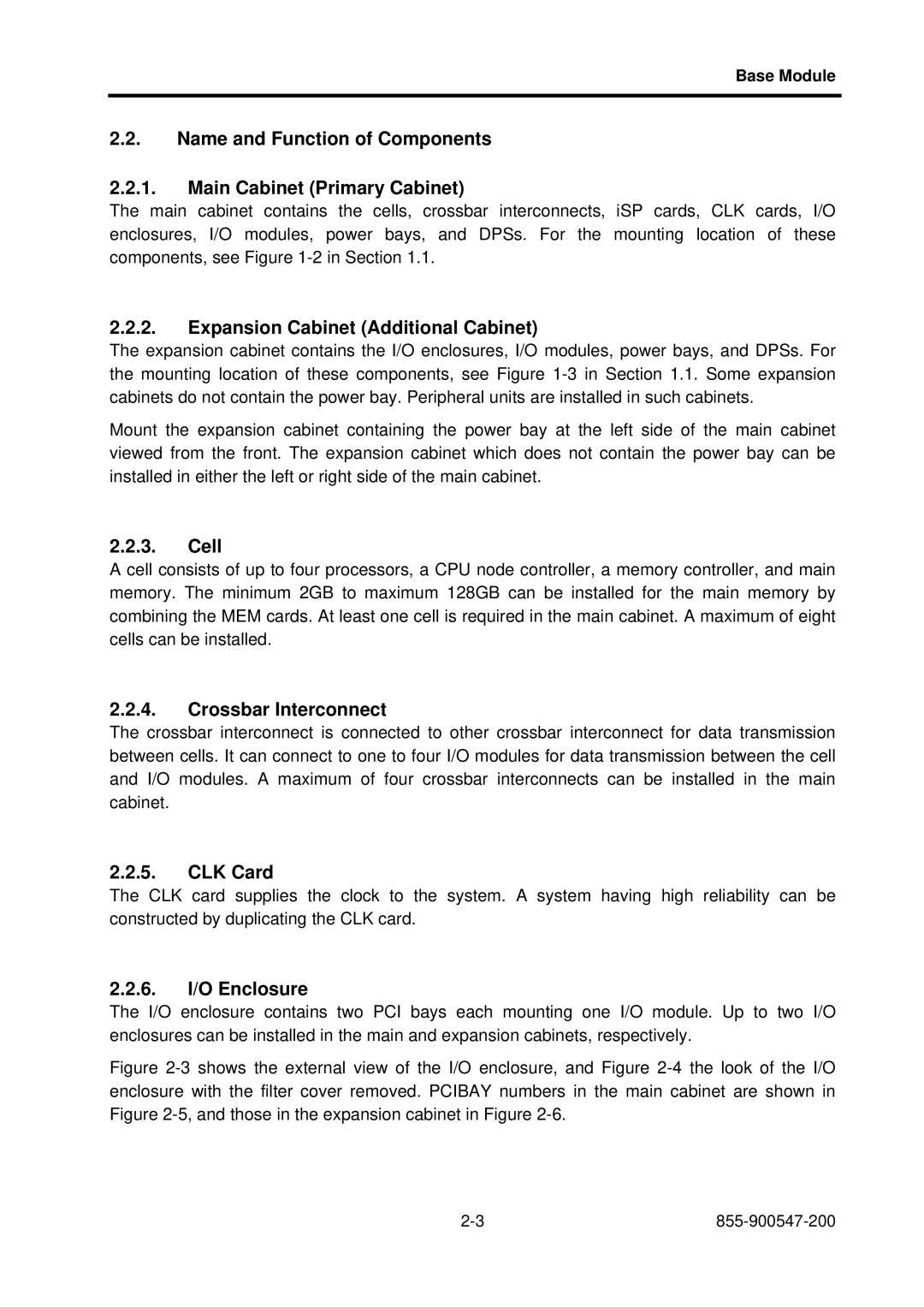Base Module
2.2.Name and Function of Components
2.2.1.Main Cabinet (Primary Cabinet)
The main cabinet contains the cells, crossbar interconnects, iSP cards, CLK cards, I/O enclosures, I/O modules, power bays, and DPSs. For the mounting location of these components, see Figure
2.2.2.Expansion Cabinet (Additional Cabinet)
The expansion cabinet contains the I/O enclosures, I/O modules, power bays, and DPSs. For the mounting location of these components, see Figure
Mount the expansion cabinet containing the power bay at the left side of the main cabinet viewed from the front. The expansion cabinet which does not contain the power bay can be installed in either the left or right side of the main cabinet.
2.2.3.Cell
A cell consists of up to four processors, a CPU node controller, a memory controller, and main memory. The minimum 2GB to maximum 128GB can be installed for the main memory by combining the MEM cards. At least one cell is required in the main cabinet. A maximum of eight cells can be installed.
2.2.4.Crossbar Interconnect
The crossbar interconnect is connected to other crossbar interconnect for data transmission between cells. It can connect to one to four I/O modules for data transmission between the cell and I/O modules. A maximum of four crossbar interconnects can be installed in the main cabinet.
2.2.5.CLK Card
The CLK card supplies the clock to the system. A system having high reliability can be constructed by duplicating the CLK card.
2.2.6.I/O Enclosure
The I/O enclosure contains two PCI bays each mounting one I/O module. Up to two I/O enclosures can be installed in the main and expansion cabinets, respectively.
